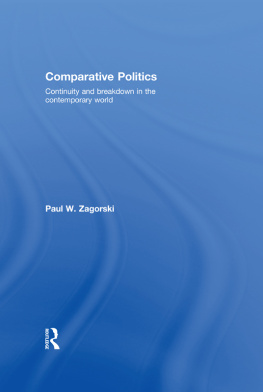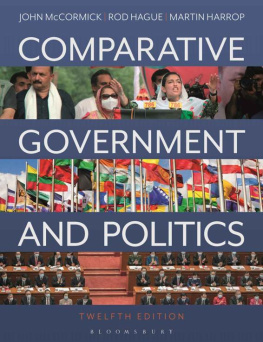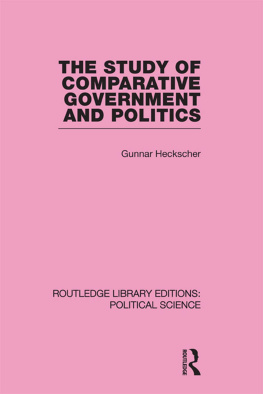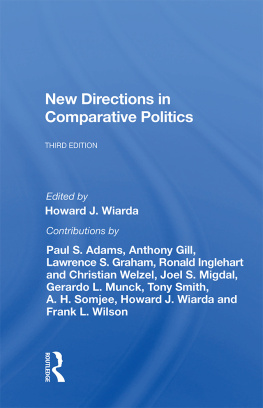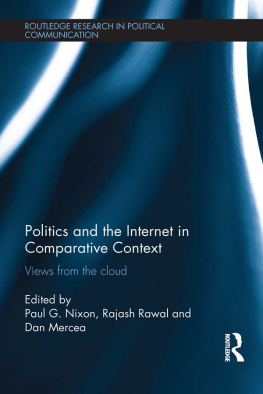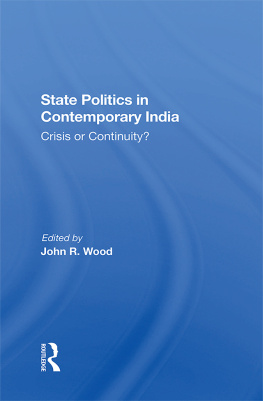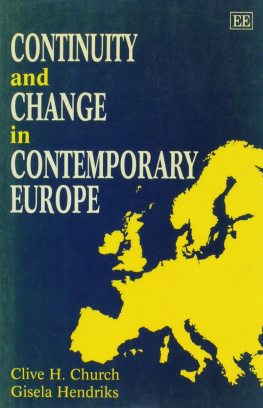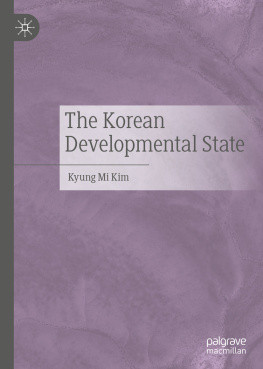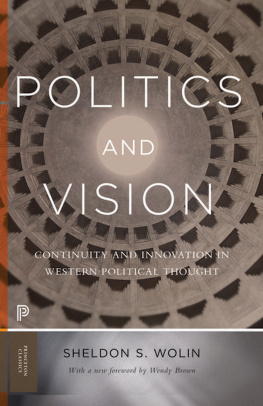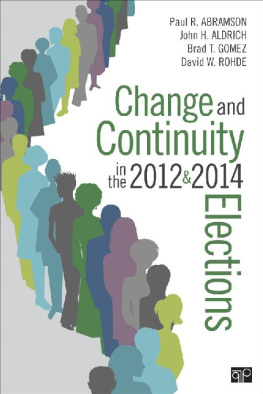W. Zagorski Paul - Comparative Politics: Continuity and Breakdown in the Contemporary World
Here you can read online W. Zagorski Paul - Comparative Politics: Continuity and Breakdown in the Contemporary World full text of the book (entire story) in english for free. Download pdf and epub, get meaning, cover and reviews about this ebook. year: 2009, publisher: Routledge, genre: Politics. Description of the work, (preface) as well as reviews are available. Best literature library LitArk.com created for fans of good reading and offers a wide selection of genres:
Romance novel
Science fiction
Adventure
Detective
Science
History
Home and family
Prose
Art
Politics
Computer
Non-fiction
Religion
Business
Children
Humor
Choose a favorite category and find really read worthwhile books. Enjoy immersion in the world of imagination, feel the emotions of the characters or learn something new for yourself, make an fascinating discovery.
- Book:Comparative Politics: Continuity and Breakdown in the Contemporary World
- Author:
- Publisher:Routledge
- Genre:
- Year:2009
- Rating:4 / 5
- Favourites:Add to favourites
- Your mark:
- 80
- 1
- 2
- 3
- 4
- 5
Comparative Politics: Continuity and Breakdown in the Contemporary World: summary, description and annotation
We offer to read an annotation, description, summary or preface (depends on what the author of the book "Comparative Politics: Continuity and Breakdown in the Contemporary World" wrote himself). If you haven't found the necessary information about the book — write in the comments, we will try to find it.
W. Zagorski Paul: author's other books
Who wrote Comparative Politics: Continuity and Breakdown in the Contemporary World? Find out the surname, the name of the author of the book and a list of all author's works by series.
Comparative Politics: Continuity and Breakdown in the Contemporary World — read online for free the complete book (whole text) full work
Below is the text of the book, divided by pages. System saving the place of the last page read, allows you to conveniently read the book "Comparative Politics: Continuity and Breakdown in the Contemporary World" online for free, without having to search again every time where you left off. Put a bookmark, and you can go to the page where you finished reading at any time.
Font size:
Interval:
Bookmark:
- Explanation of core concepts such as state, nation, regime, legitimacy, modernization, globalization, revolution, and mass movements.
- Introduction of key theoretical approaches such as institutionalism, structural functionalism, political culture, political economy, and game theory.
- Detailed coverage of democratization, advanced democracies, developing countries, and communist and post-communist states.
- A range of perspectives to present a nuanced view of the discipline and contemporary political developments.
- Case studies of individual countries including Germany, the United States, Russia, Iran, Saudi Arabia, Iraq, Nigeria, Zaire/Congo, South Africa, Brazil, Argentina, Peru, Pakistan, India, Japan, Indonesia, Taiwan, and the Peoples Republic of China.
- Country-focused textboxes giving a chronology of key developments, including the United Kingdom, France, Afghanistan, and Kosovo.

by Routledge
2 Park Square, Milton Park, Abingdon, Oxon OX14 4RN
by Routledge
270 Madison Avenue, New York, NY 10016
A catalogue record for this book is available from the British Library
Zagorski, Paul W.
Comparative politics : continuity and breakdown in the contemporary world / Paul W. Zagorski.
Includes bibliographical references.
I. Title.
320.6dc22 2008034148
ISBN10: 0-415-77729-1 (pbk)
ISBN10: 0-203-88247-4 (ebk)
ISBN13: 978-0-415-77729-2 (pbk)
ISBN13: 978-0-203-88247-4 (ebk)
Font size:
Interval:
Bookmark:
Similar books «Comparative Politics: Continuity and Breakdown in the Contemporary World»
Look at similar books to Comparative Politics: Continuity and Breakdown in the Contemporary World. We have selected literature similar in name and meaning in the hope of providing readers with more options to find new, interesting, not yet read works.
Discussion, reviews of the book Comparative Politics: Continuity and Breakdown in the Contemporary World and just readers' own opinions. Leave your comments, write what you think about the work, its meaning or the main characters. Specify what exactly you liked and what you didn't like, and why you think so.

